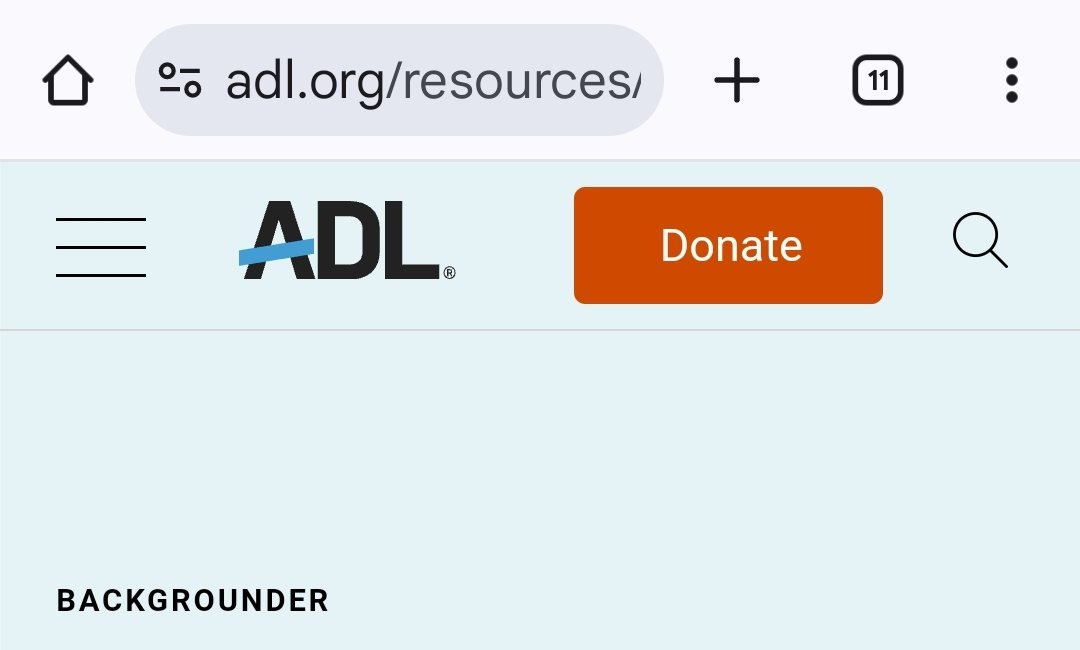The controversy surrounding H.Res. 1449, which adopts the IHRA definition of antisemitism and potentially conflates criticism of Israel with antisemitism, bears striking similarities to the Iraq War protests of the early 2000s—only this time, the opposition has the potential to reach an even larger scale and broader coalition. The Iraq protests were a watershed moment in modern political dissent, uniting diverse groups under a single cause: opposition to the U.S.'s involvement in a costly, unnecessary war. Likewise, this bill, with its implications for free speech, foreign policy, and systemic inequities, has the potential to galvanize an even wider spectrum of opposition.

1. A Unified Front Against Foreign Policy Decisions
The Iraq War Protests: The movement united progressives, anti-war conservatives, libertarians, religious groups, and even anarchists. While their reasons for opposing the war varied—from pacifist ideals to distrust of government overreach—the shared opposition to U.S. military action in Iraq created a powerful, if temporary, coalition.
The Antisemitism Bill: Similarly, this bill has the potential to unite progressive Democrats, Arab Americans, isolationist conservatives, libertarians, and even far-right factions. The shared concern? A belief that U.S. foreign policy is prioritizing the interests of Israel at the expense of American values, domestic needs, and free speech rights. The scope of this issue, which touches not just foreign policy but also civil liberties, could draw an even wider base of dissent.
2. Free Speech as the Core Rallying Cry
Iraq Protests: The Iraq protests were largely about opposing war and imperialism, but they were also about challenging the narrative control exerted by the government and media. Protesters criticized the suppression of dissent and the marginalization of voices opposing the war.
The Antisemitism Bill: In this case, free speech is even more central to the controversy. Critics argue that the bill conflates criticism of Israeli policies with antisemitism, effectively chilling debate and criminalizing dissent. This is a unifying issue that transcends ideological boundaries, with everyone from progressives to libertarians concerned about the erosion of First Amendment protections.
3. Broad-Based Frustration with Elites
Iraq Protests: Opposition to the Iraq War was fueled by frustration with political elites—both Democrats and Republicans—who were seen as complicit in pushing for a costly, unnecessary war. This distrust of the establishment was a defining feature of the movement.
The Antisemitism Bill: The same frustration is evident here. Critics of the bill see it as another example of political elites prioritizing the interests of powerful lobbying groups (in this case, pro-Israel organizations) over the needs of everyday Americans. For poor communities, this becomes a rallying cry against misplaced priorities: why focus on shielding Israel from criticism when millions of Americans face poverty, healthcare crises, and systemic inequality?
4. Expanding the Coalition
Iraq Protests: The anti-Iraq War movement was notable for its diversity, bringing together groups that would normally never work together—progressives, conservative isolationists, veterans, and even religious organizations like the Quakers.
The Antisemitism Bill: Opposition to this bill has the potential to expand even further. Beyond progressives and Arab Americans, far-right factions like white nationalists (who oppose U.S. support for Israel for their own problematic reasons) are also critical of this legislation. While uncomfortable and contentious, this wide base of dissent mirrors the coalitions formed during the Iraq protests—but on a larger scale.
5. The Role of Arab and Muslim Communities
Iraq Protests: For Arab and Muslim communities, the Iraq protests were deeply personal, as the war directly affected their homelands and painted their communities as the "enemy" in the U.S. political narrative.
The Antisemitism Bill: Similarly, Arab and Muslim communities are central to the opposition here, as the bill is seen as silencing advocacy for Palestinian rights and shielding Israel from accountability. This time, however, their voices are amplified by growing awareness of Palestinian struggles and broader coalitions willing to support them.
6. Amplified by Social Media
Iraq Protests: The Iraq protests were largely organized through grassroots networks and early internet forums. While massive in scale, the movement was limited by the technology of its time.
The Antisemitism Bill: In the age of social media, opposition to this bill could grow even faster and reach a broader audience. Platforms like X (formerly Twitter), Instagram, and TikTok allow activists to share information, rally supporters, and amplify dissent in ways that were impossible during the Iraq protests. This makes the potential scale of opposition much larger.
7. The Stakes Are Even Higher
Iraq Protests: The Iraq protests were about preventing a disastrous war and addressing the humanitarian and financial costs of U.S. imperialism. The stakes were high, but they were primarily focused on foreign policy.
The Antisemitism Bill: The stakes here are arguably broader. Critics argue that this bill not only impacts U.S. foreign policy but also sets a dangerous precedent for free speech, government accountability, and the role of lobbying in shaping legislation. These are issues that touch every American, making the potential for outrage even greater.
A Protest Movement on Steroids?
While the Iraq protests were massive and impactful, the opposition to this bill could grow even larger for a few reasons:
Intersectionality: The bill intersects with multiple issues—free speech, foreign policy, civil rights, and economic inequality—bringing together a wider coalition of critics.
The Power of Social Media: Unlike the Iraq protests, today’s activists have access to powerful tools for organizing and spreading their message, potentially drawing in millions more.
Heightened Distrust of Government: In today’s polarized political climate, distrust of elites and institutions is at an all-time high, creating fertile ground for opposition movements.
Broader Ideological Range: The coalition against this bill spans an even wider spectrum, from progressive Democrats to Arab communities to far-right conservatives.
Conclusion
The opposition to H.Res. 1449 has the potential to become a defining political movement of our time, much like the Iraq War protests were in the early 2000s—but on steroids. By uniting disparate groups under shared concerns about free speech, foreign policy, and government accountability, this controversy could ignite widespread dissent that transcends ideological divides. However, the success of this movement will depend on its ability to navigate deep ideological differences and maintain focus on common goals, rather than fracturing under the weight of its diversity.
The Hypocrisy of the ADL:
As a Christian, I am both horrified and outraged by the blatant hypocrisy perpetuated by organizations like the Anti-Defamation League (ADL). An organization that claims to combat hate and foster tolerance has instead branded itself as a divisive force, mislabeling and defaming entire groups—2.4 billion Christians included—under the guise of combating e…



